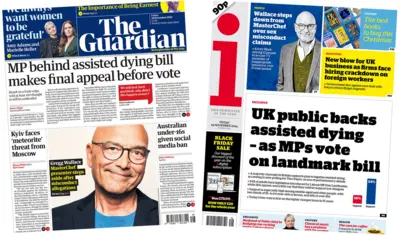We've updated our Privacy and Cookies Policy
We've made some important changes to our Privacy and Cookies Policy and we want you to know what this means for you and your data.
Labour extends jobs guarantee for long-term unemployed
Labour says its "jobs guarantee" scheme for young unemployed people will last for the whole of the next parliament, if it wins the 2015 general election.
Under the plan, 18 to 24-year-olds out of work for a year will be offered a taxpayer-funded job for six months - with those who refuse losing benefits.
Labour says it would pay for this by taxing bank bonuses and changing tax rules for the pensions of high earners.
The Tories say the sums "don't add up", with the money already allocated.
Top Stories
Labour sources say the five-year ВЈ5.5bn initiative is the party's most substantial manifesto pledge to date, coming on top of previous commitments to reverse cuts to housing benefit and to reinstate the 10p tax rate.
Top Stories
But the Conservatives are insisting that Labour has already committed to spending the proceeds of a bank bonus tax on other policies, such as building 25,000 new affordable homes, and questioned whether it can fund the move without resorting to extra borrowing.
There were 917,000 unemployed 16-24 year olds in the three months to December 2013, including those in full-time education but looking for work.
Under Labour's Compulsory Jobs Guarantee, those aged 18-25 out of work for 12 months or more would be offered 25 hours' work a week on the minimum wage and the employer would have to guarantee compulsory training.
'Starter jobs'
Up to 80% of the jobs that will be created will be in the private sector, Labour hopes.
Top Stories
Speaking during a visit to a building site in south London, Labour leader Ed Miliband said all sections of society had to benefit from the recovery in the economy.
"We've got 56,000 young people who have been unemployed for over 12 months," he said.
"That is double what it was when this government came to power. They are not taking action to help our young people and a future Labour government will."
Shadow chancellor Mr Balls said the offer to young people would be a "tough" one, signalling that life on welfare would "no longer be an option" under a future Labour government.
Image source, PA
"Those who can work will be required to take up the jobs on offer or lose their benefits," he said. "A life on benefits will simply not be an option."
The initiative will also apply to adults aged 25 or over claiming Jobseeker's Allowance for two years or more.
Last month, the ґуПуґ«ГЅ learned that Labour had committed to fund the scheme for only a single year after the 2015 election but this has been extended to the whole 2015-2020 period.
The party is promising to fund the bulk of the scheme in 2015-16 by repeating its one-off 2009-10 tax on bank bonuses, which it says would raise between ВЈ1.5bn and ВЈ2bn.
In the subsequent four years of the Parliament, it says the scheme will be paid for by restricting pensions tax relief for people earning more than ВЈ150,000 to the same rate as basic-rate taxpayers, expected to raise about ВЈ900m a year.
'More expensive'
Labour has been criticised for past statements in which it said it would use the proceeds of a bank bonus tax for a range of other policies as well.
Ahead of the 2011 Budget, Labour leader Ed Miliband said the bank bonus tax would pay for a ВЈ1.2bn house building scheme and ВЈ200m worth of regional economic projects as well as a ВЈ600m youth jobs fund.
The Conservatives said the new policy was a rehash of the Future Jobs Fund scheme introduced by Labour while it was in power but subsequently scrapped by the coalition.
Treasury minister David Gauke said his own department's research suggested any scheme modelled on the Future Jobs Fund could cost up to ВЈ2.6bn a year.
"This is a more expensive policy than Labour are prepared to acknowledge," he told ґуПуґ«ГЅ Radio 4's World at One. "And I am afraid the consequence would be more borrowing."
But Mr Balls said the new initiative was very different to past schemes and the Tories' figures were "out of date".
Amid an argument over the cost of the scheme, the Institute for Fiscal Studies said Labour's previous bank bonus tax had been "relatively effective" in raising up to ВЈ2.3bn, more than was expected at the time.
But its director Paul Johnson said announcing a similar plan so far in advance of its implementation would enable bankers to change their arrangements to avoid the tax.
Top Stories
More to explore
Most read
Content is not available








